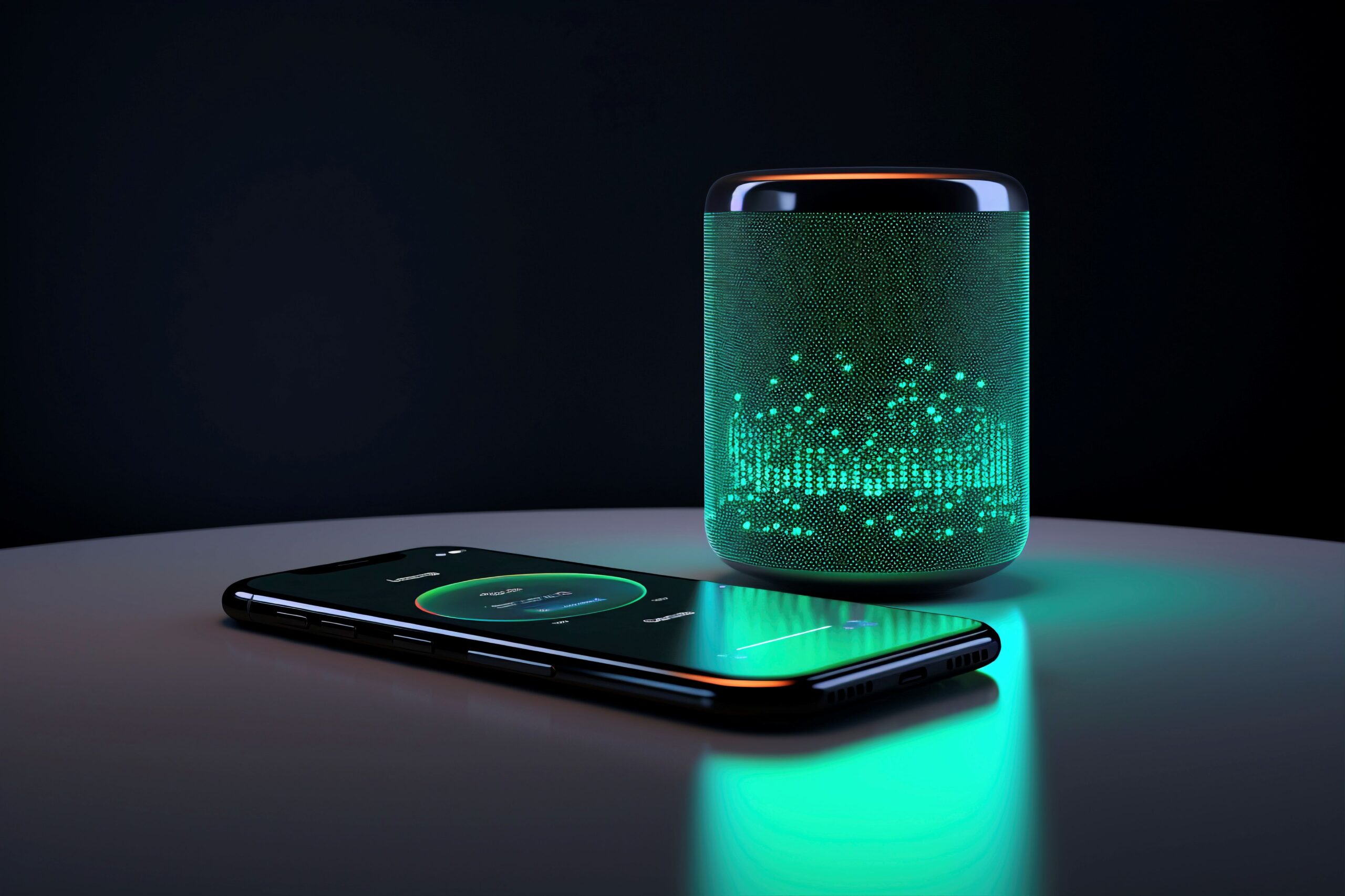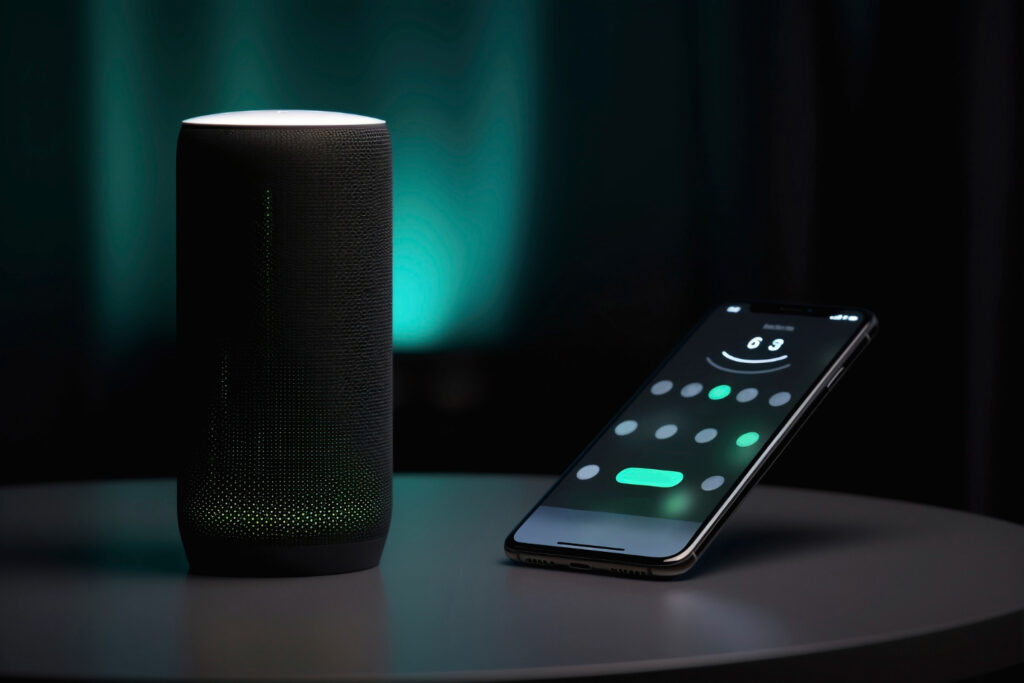The Future Of Smart Assistants In Everyday Life
by Soumava Goswami Technology 09 April 2025

The Smart Home Market in the US is Growing. The emphatic growth of this real estate business vertical is based on the use of smart AI-powered voice assistants and smart appliances.
An Investopedia research has recently published that home-based smart gadgets like Amazon Echo or Google Home have been reduced! Increased commoditization and reduced demand for the devices have been driving down prices.
Certainly, smart home prices are affected as well. Owing to a price deficit, more people from the middle class segment would be interested in buying apartments with smart assistants installed.
Counting the new home purchases, this market segment is projected to be valued at $69.97 by 2030.
However, that’s not the only reason smart homes are selling fast. The installed smart assistants are becoming more convenient, efficient, and secure by the day. Homeowners can enjoy better utilities at discounted prices. So, what’s the future of smart assistants?
As their capabilities grow, so does our dependence on them for everyday life management.
The Conglomerates Facilitating Sales Of Smart Homes
The US smart home market has a complete brands’ ecosystem leading it. Real estate companies are at the basis. Keyway is one of the biggest brands building homes with smart assistants in the US.
More than 5% of current projects flag Keyway as one of the developers. However, tech companies are equally contributing to smart homes.
They are, in fact, driving the future of smart assistants. There are companies Apple Inc., Schneider Electric, Panasonic, Sony, Amazon, and Honeywell driving the true digital transformation of homes.
Of late, Siemens launched Brightly Software, a better home maintenance & management software for smart homes.
On the other hand, there are brands like Vivint, handling the marketing part of the smart home sector. Vivint assembles homes with smart assessments as clients order. Till then, they have installed 2 million homes.
Their growing relevance is evident in the integration of IT service desk automation. The tech streamlines workflows and improves productivity in smart homes used as private offices.
The Future Of Smart Assistants Is Here: Here’s How It’s Transforming Life

The future of smart assistants is bright and most of these smart assistants are making our everyday lives easier.
We can use most of these tech solution tools for planning routines, streamlining work, and making thoughtful use of modern technology.
Here are some examples to help you understand how it’s transforming our daily lives –
The Intelligent Assistants
Smart or intelligent assistant tools are almost everywhere. We can use them in more ways than we can count. Let’s say that we want to assist with our shopping; the intelligent assistant helps us find products and solutions to our needs.
Helping In Navigation
In navigation, they offer real-time traffic updates and route options, enhancing travel efficiency and reducing commute stress.
Similarly, MSP automation for IT service desks is revolutionizing how IT support operates, streamlining ticket management, automating responses to common queries, and ultimately enhancing efficiency in resolving technical issues.
Helping With Fitness
Also, intelligence assistants work as virtual fitness coaches, and they encourage users to stay healthy and active by tracking their activity.
Most of these tools can track and manage your vitals through smart tools like smart watches or devices to effectively monitor your health.
They can help monitor your blood pressure and heart rate. These tools can tailor information based on your current health and help you improve your exercise routine.
Productivity Management
Smart assistant tools help with managing productivity and improving the overall quality of work.
Whether you’re a business owner or someone working as an employee, smart assistants powered by AI can improve email management, engagement with different stakeholders, scheduling meetings, or tracking employee performance.
With AI integration, the future of smart assistants’ tools for productivity look even better.
Customer Service Assistants
Customer service assistants like chatbots and automated chat segments in business are also examples of smart assistant tools.
These tools help resolve customer queries and grievances. They can also improve sales and drive business.
Security In Smart Technologies
While intelligent assistants promote convenience, they also raise significant security concerns. Users remain apprehensive about privacy and data security when dealing with these technologies.
Ensuring solid encryption and security protocols is crucial for maintaining trust. Many companies proactively prioritize these features, implementing end-to-end encryption and issuing regular security updates to safeguard sensitive information.
Many intelligent assistants now offer personalized voice recognition as a security measure to aid users further, reducing unauthorized access and ensuring data remains protected.
As technology advances, improving the transparency of data collection and usage policies will be crucial in alleviating user concerns and providing peace of mind in the digital age.
Consumer Confidence In AI-Featured Homes
The volume of demand for homes with smart assistants has always remained subdued. But this business is growing fast. The main reason behind that is that customers are getting what they want within their budget.
On that note, you must know that the real estate market is highly disintegrated. 80% of the companies in this sector are unorganized dealers and sole proprietors.
Certainly, they focus on niches. For example, there will be two to three real estate developers dominating a 3 to 4-kilometer radius. Their projects are less costly. So, affordability is the main thing that is pulling customers.
More than 30% of the US youth can afford single apartments only. Meanwhile, mostly small realtors develop such homes. When it comes to AI homes, they are the ones who develop those.
In the meantime, consumer spending has also increased. People are willing to spend more to buy smart homes. The main triggers are the AI-featured smart gadgets that pep up the lifestyle in these homes!
Future Of Smart Assistants: Developments & Trends

The future of intelligent assistants holds exciting possibilities. With continuing advancements, industry experts anticipate further integration with Internet of Things (IoT) devices, broadening their functionality within interconnected ecosystems.
Enhanced emotional recognition capabilities are also expected to emerge, enabling assistants to respond empathetically to users by analyzing voice tone and mood.
Expanding into new sectors will become inevitable as these technologies evolve, offering innovative solutions and services across different industries.
From healthcare to education and beyond, intelligent assistants will likely become central to enhancing service delivery and optimizing operations.
Real-Life Examples And Case Studies
Several notable examples illustrate that the future of smart assistants in homes is going to change. The sale of smart homes will increase. Meanwhile, small realtors will dominate the market mainly.
However, more tech brands will enter the real estate scene too. You will see that Sony or Sennheiser is coming up with new smart home gadgets!
Educational institutions deploy them to support learning by providing answers and facilitating interactive discussions.
Recent reports have highlighted industry breakthroughs that showcase the growing reliance on these technologies to enhance efficiency and improve user experiences across various domains.
As intelligent assistants continue demonstrating their potential, they become indispensable allies in optimizing personal and professional environments.
Read Also:



































































































